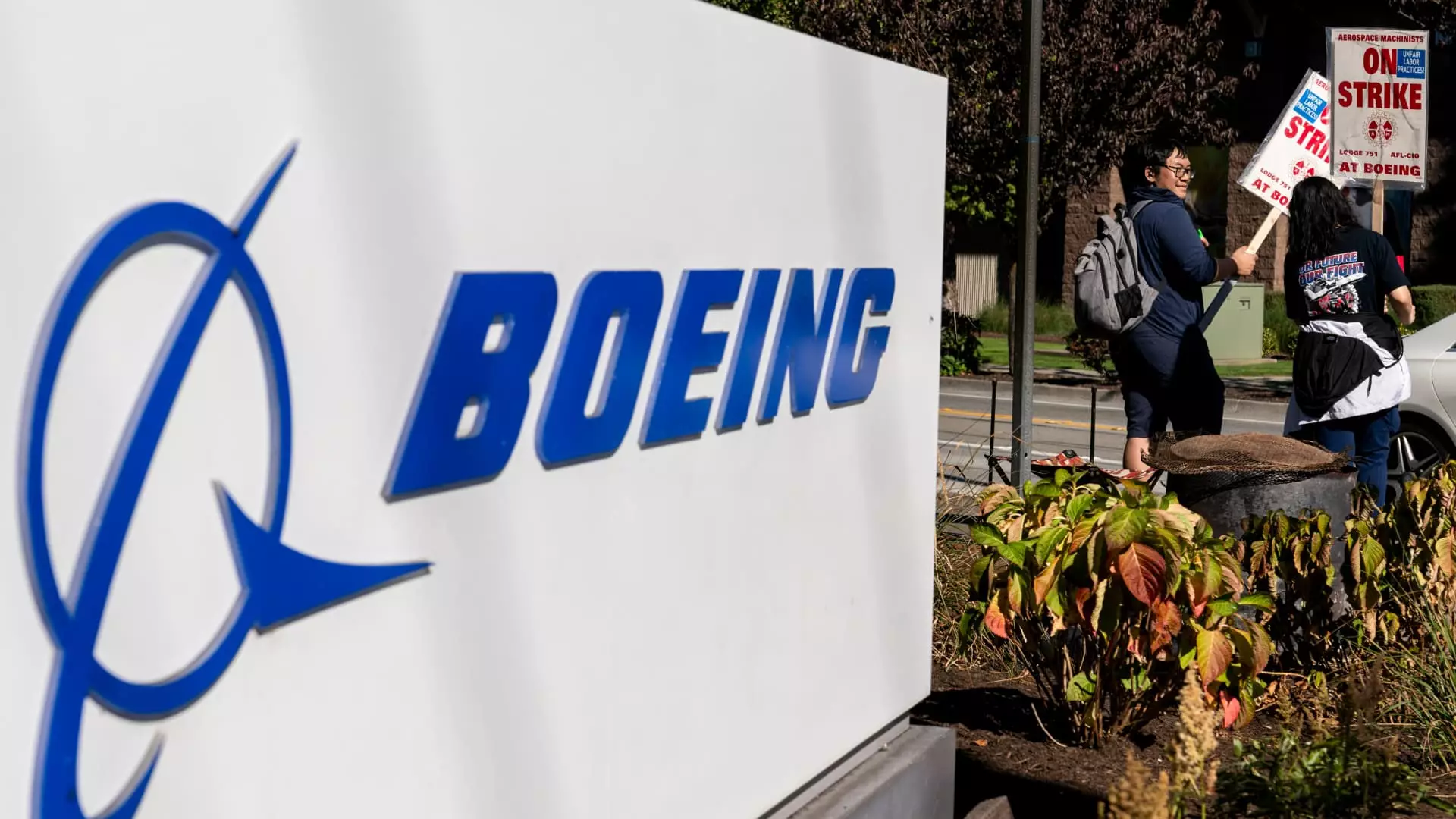Boeing is poised at a critical crossroads with the recent appointment of Kelly Ortberg as its new CEO. As he prepares to present his vision for the future, analysts await insights into strategies that will steer the company out of its current turmoil. Ortberg’s first quarterly earnings call is set against the backdrop of considerable upheaval, primarily due to an ongoing machinists’ strike. This dual scenario underscores the challenges and opportunities facing the aviation giant as it seeks to restore its name and improve operational integrity.
In early October, Boeing shared preliminary third-quarter results that tell a sobering story for stakeholders. The company reported revenues of $17.8 billion—a decline of less than 2% year-over-year. However, financial hardships are palpable with a staggering loss of $9.97 per share and a cash outflow of $1.3 billion. Despite these difficulties, Boeing reported maintaining $10.5 billion in cash and marketable securities by the end of the quarter. These figures highlight the company’s precarious financial state and the substantial hurdles Ortberg will need to navigate to rectify them.
The context of Ortberg’s leadership beginning coincides with a massive strike involving over 32,000 machinists. This protest, initiated on September 13, resulted from dissatisfaction with a rejected contract proposal, which offered significant raises. The newly proposed agreement aimed to offer machinists a more appealing 35% pay increase over four years, along with enhanced benefits. Such labor disputes are financially damaging to Boeing, costing the firm an estimated $1 billion monthly. The resolution of these labor issues is not only essential for the morale of the workforce but is vital for the stability of the broader aerospace supply chain, which is already facing headwinds, including furloughs.
Despite the challenges, there is cautious optimism among analysts regarding the potential passage of the new proposal. The results of the labor vote, expected late Wednesday night, will likely serve as a turning point for Boeing. Analysts have projected an adjusted loss per share of $10.52, reaffirming the need for immediate resolution on the labor front to regain investor confidence and halt spiraling losses.
Kelly Ortberg was handed the monumental task of revamping Boeing’s operations and restoring its reputation tarnished by recent quality issues and safety concerns. Reports, including a volatile incident involving an Alaska Airlines flight, have reignited scrutiny from regulators and customers alike. Ortberg’s intentions to reduce the company’s global workforce by 10% suggest an immediate drive towards operational efficiency. However, the effectiveness of such measures remains to be seen as the company charts its course toward recovery.
The upcoming days will be pivotal for Boeing as it faces not only financial deficits and labor strife but also the urgent call for a renewed identity under its new leadership. As Ortberg prepares for his debut call with analysts, the outcomes of the labor negotiations could either bolster or hinder his plans for revitalization. The pathway to recovery requires both decisive actions and innovative strategies tailored to reconstruct the company’s framework and regain its standing in the aerospace industry.

